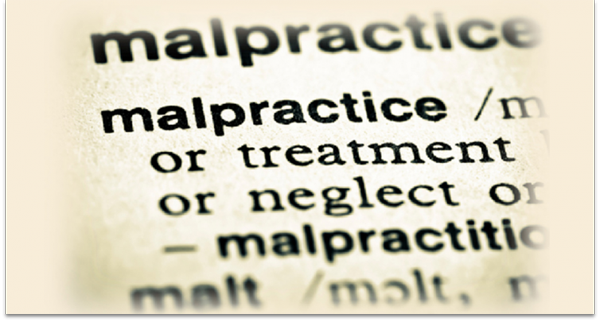Establishing the Attorney-Client Relationship – Understanding the Requirements for a Legal Malpractice Case – Part 4
Can I sue my lawyer?
In Parts 1 and 2 of this series, we covered two of the three essential elements of a legal malpractice claim:
- The attorney failed to exercise ordinary care, skill and diligence.
- Collectable damages were caused by the attorney’s failure.
In Part 4, we’ll cover the most fundamental element you’ll need to prove – that there was an attorney-client relationship or a duty owed by the attorney to the plaintiff. Here is a very simple example. You be the Judge.
Is this a case of Legal Malpractice?
 You need to file a court document before tomorrow’s deadline. Your best friend is a lawyer. Since you know he will be at the downtown courthouse tomorrow morning, you ask him to help you out and file the document. He agrees, but then forgets to file your document. You miss the filing deadline, and end up losing your right to pursue your claim worth thousands of dollars. You ask your friend what happened, and he profusely apologizes but tells you that he was just trying to do you a favor. He wasn’t really your lawyer, after all, and you did not have anything in writing.
You need to file a court document before tomorrow’s deadline. Your best friend is a lawyer. Since you know he will be at the downtown courthouse tomorrow morning, you ask him to help you out and file the document. He agrees, but then forgets to file your document. You miss the filing deadline, and end up losing your right to pursue your claim worth thousands of dollars. You ask your friend what happened, and he profusely apologizes but tells you that he was just trying to do you a favor. He wasn’t really your lawyer, after all, and you did not have anything in writing.
And the legal malpractice votes are in…..
Do you have a valid claim against your friend? Yes. This actually happens more than you would think. Once a lawyer makes that type of commitment, an attorney-client relationship is formed and the lawyer has a duty to follow-through. In this example, the lawyer caused you to miss the filing deadline and lose your claim worth thousands of dollars. You have a legal malpractice claim.
Types of Attorney-Client Relationships
There are a number of different situations where an attorney-client relationship is formed, and the attorney has a duty to you as a client:
- Expressed. A written agreement that promises specific legal work will be done on your behalf. The relationship is formed even if you don’t pay anything for the work.
- Implied. This is where an attorney-client relationship is formed by the conduct of the attorney and the client.
- Third party beneficiary. If the attorney was doing work on your behalf that benefited someone else, the lawyer also may have a duty to that person. This situation may arise if a lawyer is working on your will or estate plan. Your lawyer may have a duty to your spouse and others named in the documents he prepared on your behalf.
- Voluntary agent. The lawyer may be representing someone else but may voluntarily offer to help you out as well. A great example is a real estate closing attorney (formally representing the lender only) who offers to file a document as a favor to you.
The Lessons Learned – Put it in writing!
Of course, your goal is always to avoid problems like these before they ever occur. The best way to do that is to put it in writing. Even if the lawyer is your best friend, create and sign some sort of agreement that outlines the scope of the work to be done on your behalf, expectations for completion, and terms or fees. The more prudent lawyers also include details about work that they will not do for you, so you have a complete understanding of the scope of the representation. Whenever there is communication between you and your attorney, ensure that it is documented in writing or by email. That way both of you will be aligned in your expectations, minimizing your chances of miscommunication and future problems.
How do you know if you have a legal malpractice claim?
As the example above shows, you may not fully understand how the elements of a legal malpractice claim relate to your unique situation. Don’t rely solely on your attorney for guidance. Seek the advice of an independent, qualified legal malpractice attorney. Be sure to share all the details of your situation, whether or not you feel they are important to your claim. Those details may either help support a claim or confirm that there is no need to waste any more of your time or money.


